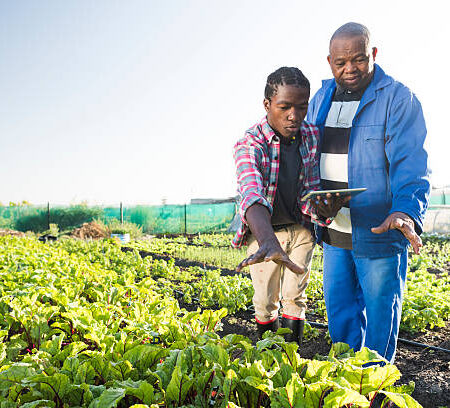Promoting Contract Farming in Murang’a County.
Farmers in Murang’a County, particularly those practicing agroecology, have been urged to embrace contract farming as a means of securing better earnings and ensuring a ready market for their produce. Agricultural experts have emphasized that contract farming shields farmers from losses and poor returns, providing them with financial stability.
Benefits of Contract Farming
During a training forum for farmers in Maragua, Dr. Elijah Kamau, the Programme Manager at the Institute of Culture and Ecology (ICE), highlighted the advantages of contract farming. He explained that it offers farmers a reliable market and consistent income.
Kamau advised farmers to form groups and establish agreements with organizations that can market their commodities, noting that such collaborations assure farmers of a steady market for their produce.
Kamau also stressed the importance of ecological farming practices and growing traditional crops to boost resilience against climate change. He advocated for water harvesting solutions like farm ponds and dam liners to ensure irrigation during dry seasons.
ICE has been supplying subsidized dam liners to farmers, offering a 50% discount and an additional 25% for farmers living with disabilities, to help address water challenges at the farm level.
Supporting Agroecology in Kenya
Kamau revealed that ICE has been at the forefront of promoting agroecology in Kenya. The organization has been conducting training forums for farmer groups engaged in agroecological practices.
It was instrumental in drafting the Murang’a Agroecological Policy and the Murang’a Agroecological Development Act 2022, making the county the first to pass laws supporting organic farming in the country.
ICE’s initiatives extend to Embu, Machakos, Tharaka Nithi, and Kiambu counties, where it partners with local administrations and other organizations to connect agroecological farmers to markets through digital platforms.
Organic Farming and Market Linkages
Moses Kariuki, an agricultural officer in Murang’a County, stated that farmers have been trained in organic farming techniques to improve their incomes. He encouraged farmers to explore horticulture, particularly indigenous vegetables, which have a high market demand.
However, he warned that without contracts, farmers risk selling their produce to brokers at low prices. Vegetables like amaranth, nightshade, and cowpea leaves, which are highly nutritious, are gaining popularity among households seeking alternatives to common vegetables.
Kariuki noted that small-scale farmers, when working individually, often lack the production volume and bargaining power to secure better prices. He advised farmers to form common interest groups to negotiate with buyers and market their produce effectively.
Cultivating Traditional Crops
Kariuki emphasized the importance of growing drought-tolerant crops, such as cassava and sorghum, which thrive in arid conditions and ensure food security. He stated that these traditional high-value crops are vital for addressing challenges posed by climate change and erratic weather patterns.
Farmers’ Experiences with Contract Farming
Joseph Muturi and Jackline Mwanza, both farmers in Murang’a County, shared their positive experiences with contract farming. They reported never struggling to find a market for their produce since signing agreements with organizations that market their commodities.
The two farmers expressed gratitude for the agribusiness training provided by ICE, which equipped them with essential skills to enhance their farming practices. Muturi also highlighted the role of social media as a powerful marketing tool that connects farmers with buyers, ensuring a ready market for their produce.
He pointed out that contract farming not only guarantees a market but also promotes value addition, enabling farmers to sell high-quality products at better prices.
Promoting Contract Farming in Murang’a County.


Comments